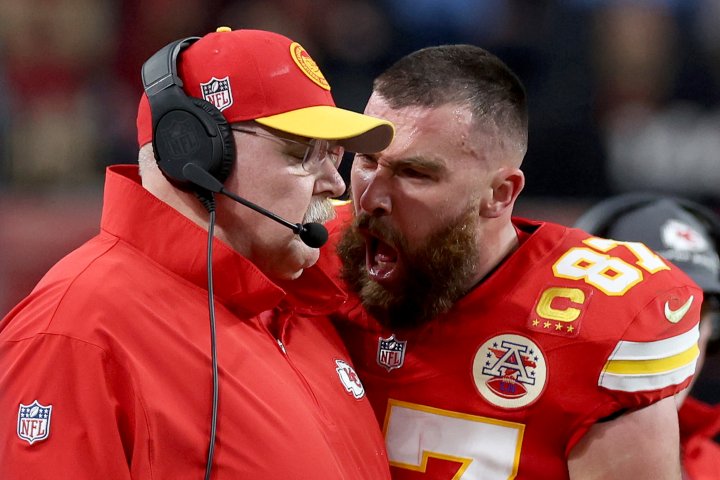
Kansas City Chiefs tight end Travis Kelce issued a heartfelt apology for his actions during a recent game where he pushed his head coach, Andy Reid. The incident occurred during a moment of frustration, but Kelce recognized the importance of taking responsibility for his actions and publicly expressing remorse.
In a statement released by the team, Kelce acknowledged that his behavior was unacceptable and not in line with the values of the Chiefs organization. He expressed regret for his actions and emphasized his commitment to being a positive role model both on and off the field.
Kelce’s apology serves as a reminder of the pressures and emotions that professional athletes face during intense moments of competition. While it is not uncommon for players to display frustration during games, it is crucial for them to maintain composure and respect for their coaches and teammates.
The incident involving Kelce and Reid highlights the importance of accountability and the need for athletes to take ownership of their actions. Kelce’s willingness to apologize demonstrates maturity and a desire to learn from his mistakes.
Head coach Andy Reid also addressed the incident, stating that he had spoken with Kelce about the incident and that they had resolved the issue internally. Reid emphasized that he has a strong relationship with Kelce and believes in his character, but also stressed the need for players to handle their emotions in a more appropriate manner.
The Chiefs organization has a reputation for promoting a culture of respect and professionalism, and Kelce’s apology aligns with these values. The team has always prioritized integrity and sportsmanship, and Kelce’s apology serves as a reminder of the high standards expected from all members of the organization.
Kelce’s actions have sparked a conversation about the pressures faced by professional athletes and the need for emotional regulation in high-stress situations. While it is natural for athletes to experience frustration, it is essential for them to find healthy outlets for their emotions and maintain respect for their coaches, teammates, and the game itself.
Moving forward, Kelce’s apology should serve as a learning opportunity for both himself and other athletes. It is crucial for players to recognize the impact of their actions and strive to handle their emotions in a more constructive manner. By taking responsibility for his behavior, Kelce has shown growth and a commitment to personal development.
In conclusion, Travis Kelce’s apology for pushing Chiefs head coach Andy Reid serves as a reminder of the importance of accountability and emotional regulation in professional sports. Kelce’s willingness to take ownership of his actions demonstrates maturity and a commitment to personal growth. The incident should serve as a learning opportunity for both Kelce and other athletes, highlighting the need for respect, composure, and professionalism on and off the field.

